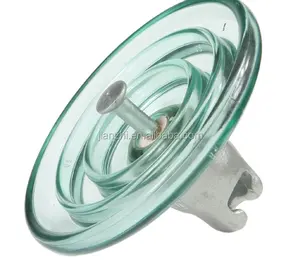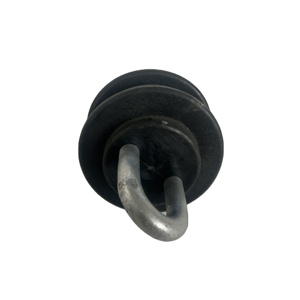Introduction to Glass Insulators
Glass insulators are essential components in the electrical and telecommunications industries, utilized primarily for supporting overhead power lines and maintaining the safety and efficiency of electrical systems. Known for their unique properties, these insulators prevent the flow of electric current while offering mechanical strength and durability. The innovative design and clear appearance of glass insulators make them a preferred choice for various applications, from utility poles to decorative lighting fixtures.
Types of Glass Insulators
There are several types of glass insulators, each designed to serve specific purposes and function under different environmental conditions:
- Suspension Insulators: These are used to suspend high-voltage transmission lines from towers, allowing flexibility and movement.
- Line Post Insulators: Ideal for supporting electricity at intermediate points along power lines, ensuring minimal electrical leakage.
- Pin Insulators: Commonly used in low to medium voltage applications, they secure conductors to transmission poles.
- Strain Insulators: These are employed in areas where wire tension is high and additional strength is required to avoid breakage.
Applications of Glass Insulators
Glass insulators have a wide array of applications, which include:
- Utility Transmission: Primarily used in electric power transmission lines to support and insulate wires from the poles.
- Telecommunications: Essential for telephone and data transmission lines, ensuring signal integrity and protection against electrical interference.
- Street Lamps and Decorative Fencing: Glass insulators are increasingly being used in decorative applications, providing a vintage aesthetic while ensuring functionality.
- Railway Signal Systems: Employed in certain railway systems for signal insulation and integrity.
Features and Advantages of Glass Insulators
Glass insulators are renowned for their features and benefits, which include:
- High Dielectric Strength: Glass provides excellent electrical insulation properties, preventing current leakage and ensuring safety.
- UV Resistance: Glass is resistant to UV light, which prevents degradation over time and ensures longevity.
- Low Maintenance: Unlike other materials, glass insulators require minimal upkeep, which can reduce overall operational costs.
- Environmental Resistance: Glass insulators can withstand various environmental conditions, including extreme temperatures and moisture, making them suitable for diverse climates.
- Aesthetic Appeal: The clear nature of glass provides a unique visual appeal, making it a popular choice for decorative purposes in addition to its practical applications.















































































































































































